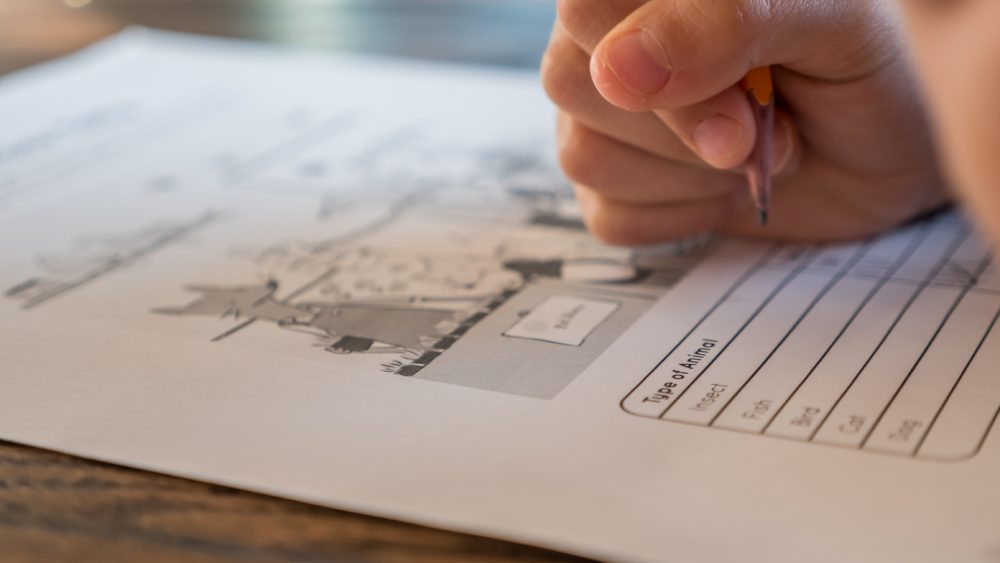As COVID-19 leads more and more states to close their schools for the rest of the year, we’re reaching out to families and teachers of students with disabilities across the country to learn how remote education is working. Are you a family member or a teacher in this situation? Fill out our survey to share your story.
Lily*, Maryland
Lily is a young professional who, along with her parents and husband, helps care for a teenage brother, Michael, who is deaf and has autism. She spoke to the Center while several members of her family were fighting respiratory symptoms, sharing their challenges, frustrations, and the ways they’re finding light in a dark time.
What services does your brother receive during the school day under normal circumstances, and how have they been adapted for COVID-19?
Michael attends a high school for students who are deaf and receives services inclusive of 1:1 support during the school day, transition planning focused on functional life skills, and a modified approach to homework. So far, his remote services are just starting to kick into gear. In the meantime, my parents and I have worked with him on functional, practical life skills like food preparation, but in the coming weeks, teachers are planning to pre-record general lessons and we are going to adapt them to be more suitable for Michael.
How are you explaining this situation to your brother, and what are his personal concerns with the disruption in his routine?
We are trying to take practical approaches in explaining the situation to him. For example, my dad is emphasizing the need to stay six feet away from each other and is using the tiles on their kitchen floor to measure the distance when they are in that room together. Michael has been watching the news, specifically The Daily Moth, which is run by a man who is also deaf. This has been an incredible resource, as he gets the news in his first language, American Sign Language (ASL).
Michael understands that people are getting sick and that we all need to be careful, but the scary reality of it—how many people are dying, the economic impact, etc., is not easy for him to grasp. The biggest concern he’s expressed is the people around him being sick.
He is very empathetic, and honestly, it’s the trait I love most about him. Empathy is what will get us through this unusual time.
How are you managing the immediate logistical challenges posed by the lack of a normal school routine for your brother?
Three of the four adults in my family work from home, which is a huge relief and a recognized privilege in a time like this. The fact that my brother has three adults around to help maintain a sense of structure will be a good thing, but like many families, this has been an adjustment for us for a number of reasons. Some of us are sick, and it’s all happening so fast. We’re still processing how to make the best of a hard situation. We are worried about getting and/or carrying COVID-19, so part of taking extra precaution means spending time away from each other. My husband and I live five minutes away from my parents and Michael and we usually see each other all the time, so this has been strange for us.
What do you wish others understood about the difficulties of navigating this unprecedented time with a family member with a disability?
This is not an “extended spring break” for many families like ours. Sure, at the beginning it’s fun to have a break from school, but many working-class families do not have the time or capacity to provide their children with the same level of 1:1 support they get in school.
Students with disabilities tend to rely heavily on structure, and many families are not able to provide that structure right now. Kids without disabilities often have more capacity to learn independently, and online distance learning approaches can be easier for them to adjust to. For students with disabilities, the playing field is not level. For many families of students with disabilities, this transition will consist of being in survival mode and simply trying to get through each day and provide their child with the care he or she needs.
Finding the Light
We are trying to focus on the kind of interactive activities we’ve always done with him that are part fun, part of everyday life, and partly an attempt to keep his learning going. We’ve been discussing the implications of the coronavirus, such as food running out of stores, and he’s been helping with lots of baking and preserving vegetables before they go bad.
Our parents are both in their 60s and are taking advantage of early opening hours at our local grocery store. My brother is so that his mom is taking him with her when she goes super early tomorrow morning. I’m proud that he’s finding little joys in the midst of a crazy time.
Since our interview, Lily’s family members have recovered from their symptoms and continue to work to keep Michael engaged and learning—and to balance keeping him informed with staying positive.
*All names in this series are changed for confidentiality.

Comments are closed.